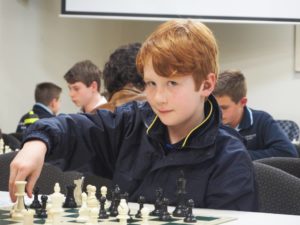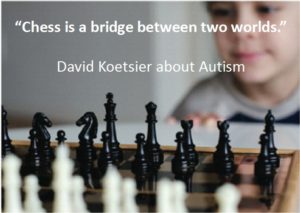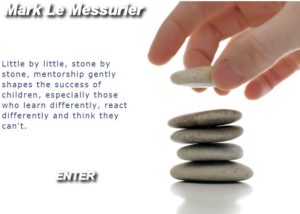by Chess Coach Mathew Drogemuller
Gabriel Cregan was six when he first picked up a chess piece. As a child diagnosed on the autism spectrum, his parents, Joanne and Andrew, had always encouraged him in pursuing activities he loved, like board games.
When they saw a notice at his school for a chess club with Bridgewater-based Company Chesslife, they encouraged him to give it a go. However, because of his anxiety around new situations, Gabriel was hesitant to try it, and only agreed to go when his dad promised to attend the class with him.
While he had a school friend in the class, everything else about it was new. Only his dad’s presence kept his anxiety at bay.
Despite the challenges, Gabriel took to the game very quickly, and was soon thriving. After starting in Term 4, he’d already completed the first book of Chesslife’s Dutch-origin chess curriculum. His father scoured the local library for books on chess, and Gabriel spent the summer holidays with his nose in them.
“He was just spotting things so quickly,” his father Andrew said. “Thriving on the puzzles. You could see he was miles ahead of the kids his own age.”
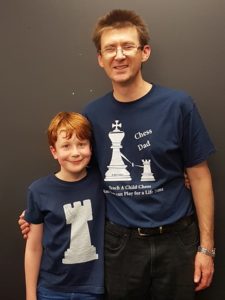
Gabriel lives with Autism Spectrum Disorder, formerly known as Aspergers Syndrome, and has co-morbid anxiety. Because of his autism, Gabriel perceives the world in a more intrusive way than people who are lower on the autism spectrum. His brain reacts intensely to even mundane stimuli, so sounds, lights and touch can be distressing.
He also has trouble dealing with new situations, and has “real anxiety around changes, [and] is very rigid, and easily annoyed and distracted by things,” according to father Andrew.
I talk to Andrew outside the Campbelltown library chess club where Gabriel is now a regular. Gabriel, with his fiery red hair and ‘out-there’ personality, is a particularly recognisable member of the Chesslife class. Andrew describes how even now Gabriel is challenged by his participation in the world’s oldest game.
“Last night we were playing in an individual tournament at the Chess Centre. Gabriel was clearly irritated by the music next door, but it’s good for him to adapt and be challenged,” he said.
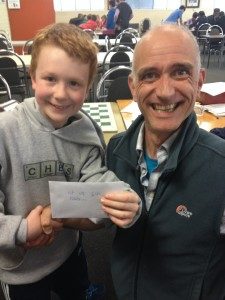
Gabriel started out playing in the Adelaide Hills school team, then later moved to the Chess Centre in Adelaide. He has now participated in the National Championships twice, finishing in the top 10 in 2014, as well as playing in the Young Masters and the Doeberl Cup at the Australian National University in Canberra.
His results are a testament not only to his natural talent, but to his perseverance in the face of challenging and new situations. At his very first National Championship he defeated the top ranked player in his division.
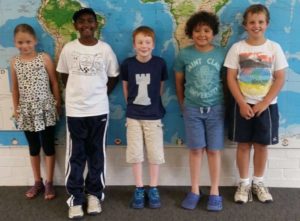
Gabriel’s confidence has improved as a result of his participation in a sport that is increasingly being recognised for its academic and cognitive benefits.
Andrew describes the first time he noticed the changes taking place in his son, “It was in a chess club in Hahndorf. David asked Gabriel to talk about one of his games in front of the class.” David, Chesslife’s energetic head coach, is also on the autism spectrum and has particular insight into teaching kids with differing abilities a passion for chess.
“Gabriel was excited and engaged. He’d started playing 18 months before that, and going to the Hahndorf club for six months.
“It was something I wasn’t expecting, a pleasure to see,”Andrew said.
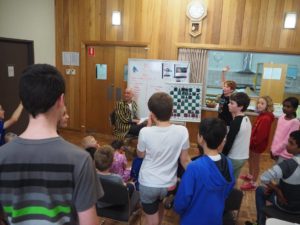
Andrew has had the chance to see other kids with similar problems to Gabriel benefiting from the hands-on coaching approach taken by Chesslife, including kids who have struggled to make friends, who have been bullied at school and who have struggled academically.
“Suddenly [they’re] interacting with other people.” Andrew says. “Just like Gabriel, and the friendships he’s made. David’s brilliant [at helping kids fit in].”
One of Chesslife’s goals is to provide an inclusive educational service that is not only fun and available to every child, regards of skill or ability, but to cater to the co-morbidities that go along with autism spectrum disorder.
Gabriel’s mother Joanne, who works with families living with disabilities to access the National Disability Insurance Scheme, has said that one of the hardest aspects her son has had to overcome is his anxiety.
“I have heard many parents say that their child’s anxiety, not the Autism Spectrum Disorder is what impacts most on their day-to-day life.”
The Cregans have been delighted at Gabriel’s skill at the game. In an email to me, Gabriel said, “I picked up chess very quickly compared to the other kids at school [and] most of them were older than me.”
For his birthday, his parents arranged an at home chess lesson where Gabriel “focused for an hour and a half, just on chess.”
His mother said, “I loved seeing his eyes light up and just soak up all that he could.”
Gabriel was soon playing in tournaments and while at first he didn’t want to interact with the other children, he now has plenty of connections with other chess players. Gabriel says, “I have made heaps of friends. I like having friends at chess because it means friendship and it feels lovely.”
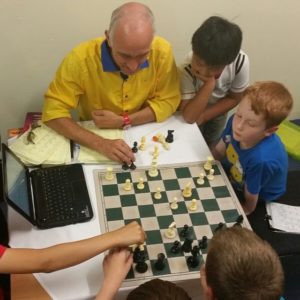
Making friends is only one of the many benefits chess has brought to Gabriel’s life. Only a few years ago, Gabriel was incapable of presenting at show and tell in front of a class of his fellow students, finding the attention “overwhelming”. According to Joanne, he now does so with ease, and it was presenting his chess games at the Campbelltown club that has helped him gain confidence. Gabriel, like many of Chesslife’s students, had little experience with team sports before becoming involved in chess.
According to Gabriel’s counsellor, Mark le Messurier, chess is an “engaging opportunity to build a child’s confidence, relationships [and] develop positive problem solving skills.”
Gabriel now travels over an hour to Campbelltown library to have chess lessons with Chesslife. His mother says, “He gets a lot out of the Campbelltown sessions, it makes for a long evening but it is worth it.”
Gabriel seems to agree; “I find it a great time to learn chess and spend time with my friends.”
